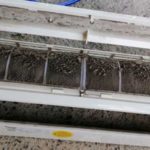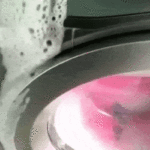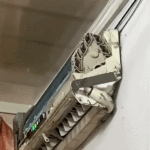Air conditioners leaking water can cause a lot of trouble in your daily life. Water dripping from the AC unit can make your room damp, and the water stains on the walls can cause discoloration. Moreover, the moisture can lead to the growth of harmful bacteria, affecting your health.
More dangerously, a leaking AC unit can cause electrical hazards such as short circuits and leaks, which pose a threat to people’s lives. On the other hand, electronic devices can also be damaged if placed under a leaking AC unit.
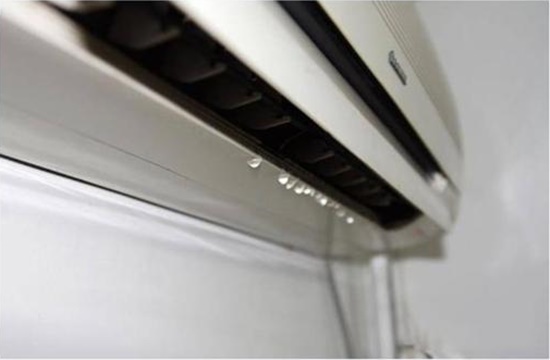
What are the reasons behind an AC unit leaking water?
1. Improper installation
The leakage from the indoor unit could be due to errors during the installation process. Specifically, the drainage pipe might not have the correct slope or is too long without a vent. As a result, water backs up and overflows from the drain pan. Or, if the AC unit is installed unevenly, the drain pan tilts, causing water to pool at the lower end and leak onto the walls or floor. It could also be that the drainage pipe is not straight and has bends, causing water to flow back into the unit.
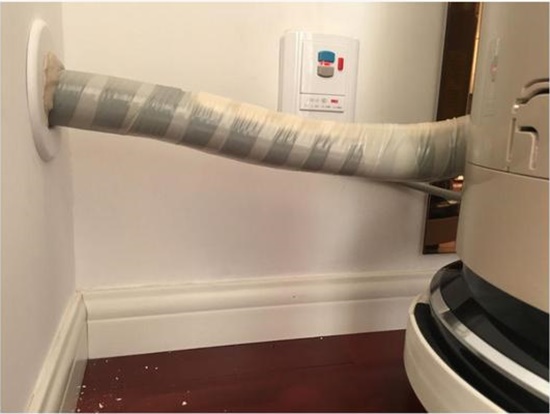
2. Not checking the AC unit’s functionality post-installation
Checking the drainage system is crucial during AC installation, but technicians sometimes overlook this step. Since the drainage pipe is relatively long and has multiple bends, even a slight error in the slope at any point can cause water to flow back into the AC unit and leak. Therefore, it is essential to test the drainage after installation, identify any installation errors, and adjust the slope of the drainage pipe accordingly.
3. Poor-quality materials
Another reason for AC water leakage is the use of low-quality insulation tubing. This tubing, which looks like foam, is used to wrap around the copper refrigerant lines of the AC unit to protect them from the environment. As the copper lines contain freon, the insulation tubing helps reduce the contact between the hot air and the copper lines. If the insulation tubing is of poor quality, it won’t fit snugly around the copper lines, leaving gaps that allow hot air to enter. This can lead to condensation and water leakage. It could also be that the insulation tubing is too thin, providing inadequate insulation, which causes the copper lines to produce condensation and leak.
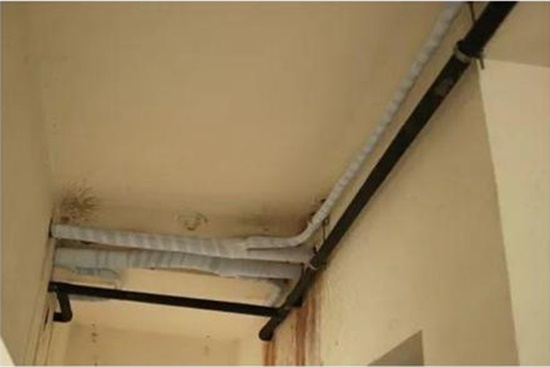
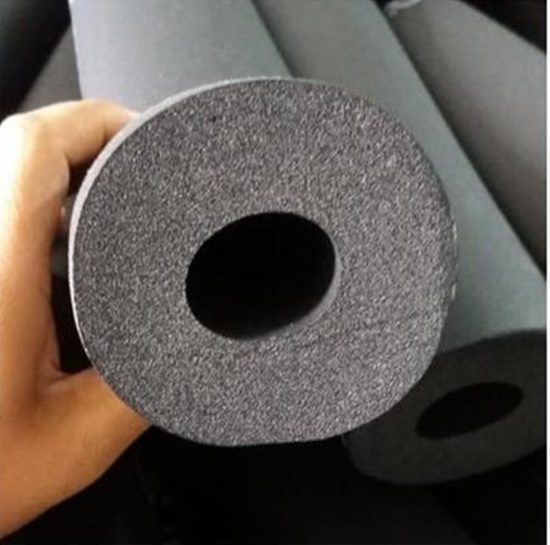
4. Poor installation and workmanship
Water leakage can also occur due to improper installation of the insulation tubing. When installing the AC unit, the insulation tubing is connected using joints, which are then sealed with adhesive and wrapped with rubber binding. Additionally, the insulation tubing can develop localized cracks, but at these joints, it must be tightly wrapped with binding to prevent hot air from entering. If only adhesive is used, extreme temperatures can cause the adhesive to loosen, allowing hot air to enter, form condensation, and leak.
5. Clogged drainage point
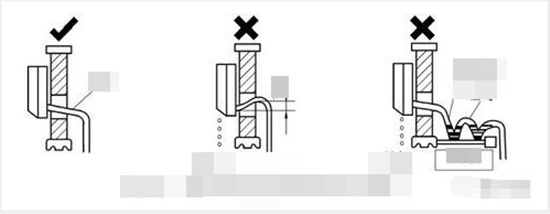
The condensed water from the AC unit is discharged through a floor drain or special drainage pipes. However, if this drainage point is connected to other pipes, such as those from the kitchen sink, it can get clogged, leading to water leakage from the AC unit. Therefore, it is best to keep the AC unit’s drainage pipe separate from other pipes.
6. Malfunctioning AC unit leading to poor drainage and leakage
AC units have an internal pump that helps remove condensed water, especially when natural drainage through a slope is not possible.
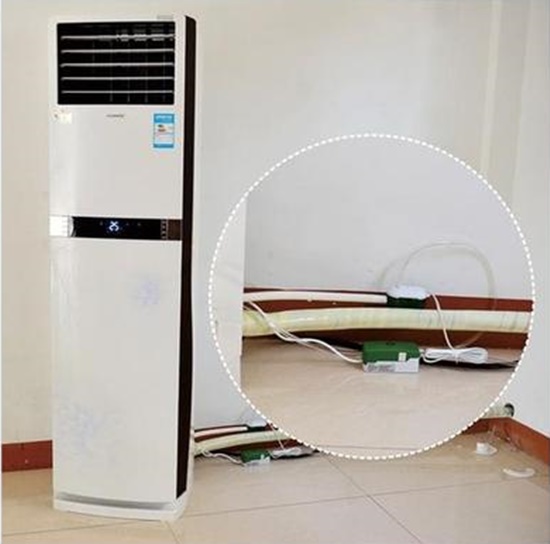
The principle behind the operation of the condensed water pump in a wall-mounted AC unit is to collect the water from the cooling system in a small tank. When the water level reaches its maximum, a switch automatically turns on, discharging the water through a pipe that leads downwards.
However, if this pump malfunctions, the condensed water from the AC unit will not be discharged properly, leading to the risk of water leakage. Therefore, it is not advisable to use AC units with this feature in large areas as it may cause drainage problems.
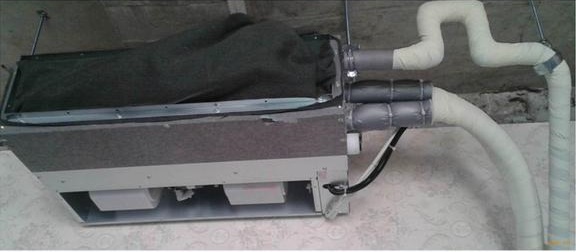
By An Nhien – Vietnamnet

























